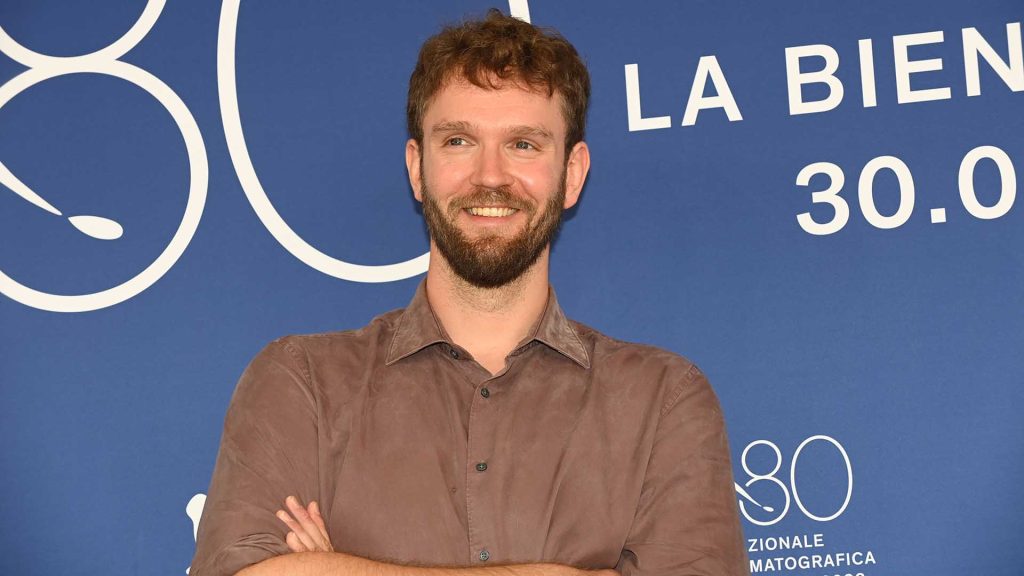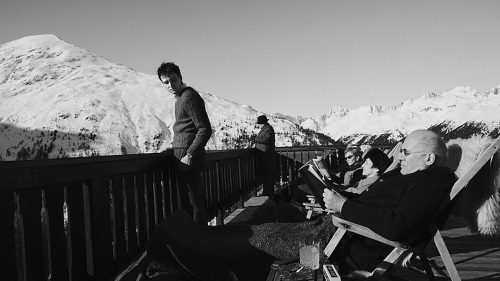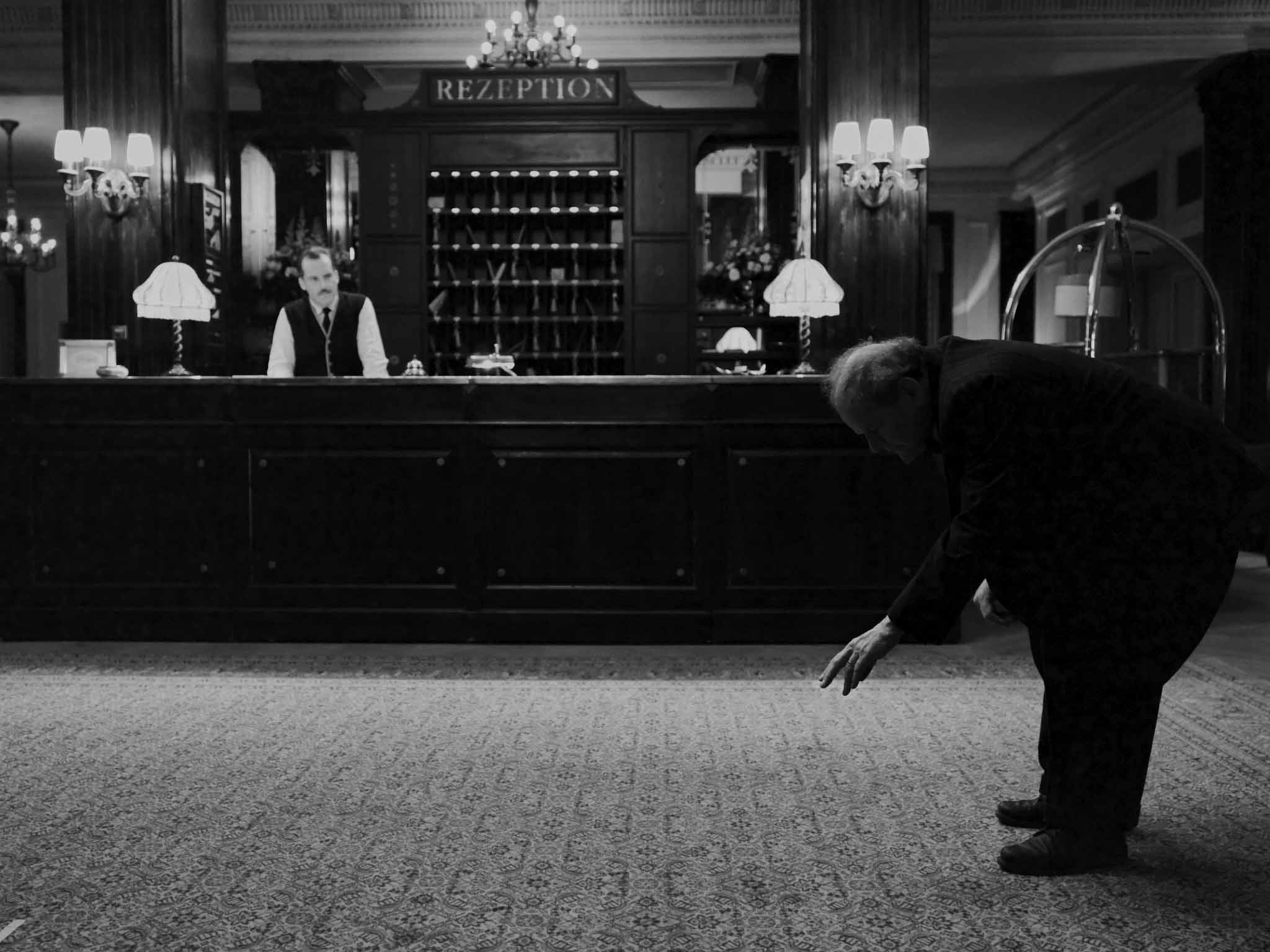
A group of scientists gathers in an old hotel in the snowy Swiss Alps. But in the heart of the mountain, strange events begin to occur. Timm Kröger takes us on a black and white dream-like journey where not everything is as it seems.
From the very first scenes in the Alps, we are transported back in time, and it feels like we are watching a classic film from the 1950s. How did you use black and white and music for this effect?
I collaborated extensively with composer Diego Ramos Rodríguez on the film’s music. He is not well-known at this point, but I hope that will change. Diego is primarily a composer of contemporary music, and this marked his first foray into film scoring. I saw it as a promising risk to engage a contemporary music composer and guide him through this unique experience. The music played a pivotal role and was a source of inspiration from the outset. I aimed for it to be both commanding and delicate, strange and enigmatic. It bears some resemblance to the music of Bernard Herrmann in Hitchcock’s films, though it was employed in a distinct manner from how it might be used today. Despite the deliberate attempt in my film to emulate the aesthetics of the 1950s, I doubt viewers would genuinely mistake it for a product of that era. The audience can perceive that it’s a contemporary film because the way the music dictates emotions feels outdated. Something new emerges, and it stands in contrast to our modern expectations of how emotions should be conveyed on screen. As for black and white, it primarily relates to the lighting. We allowed ourselves to be guided by the feeling of how each scene should be illuminated. We had this vague concept of a 1940s-1950s style of lighting for indoor locations, with a gradual transition towards a darker, more film noir ambiance as the film progresses. Additionally, we aimed for a more mature and perhaps more naturalistic lighting style throughout the movie, but we often mixed and matched these approaches as needed.

Swiss Alps, 1962: Johannes Leinert attends a physics convention, eager to listen to a revolutionary lecture by an Iranian quantum mechanics scientist—the most anticipated lecture at the convention. As Johannes wait for the conference to start, he meets Karin, a mysterious, c...
Which directors from the past does this film evoke? And perhaps which writers as well… Friedrich Dürrenmatt comes to mind, who, among other works, authored Die Physiker…
Much of the inspiration could be quite unconscious, and besides, I started working on the project a long time ago, so I might have forgotten many of the thoughts I had about it. There’s definitely Thomas Mann in there, and you’re probably right about Dürrenmatt as well. And then, there’s Erich Kästner, right? He wrote a whole bunch of very naïve, almost comedy-like stories and novels, one of which Dominik Graf based his film Fabian on. Many films have also influenced me, especially those set in the Alps and involving skiing, tapping into a traditional theme we dove into. However, I never wanted it to feel like just a collection of references or pieces evoking nostalgia. I aimed for the audience to be transported back in time. But, you know, cinema’s history is not the real history; it’s the way we remember history, shaped by cinema. So, right from the beginning, it’s like an illusion and a narrative I need to guide the audience through.

At a specific juncture in the story, several characters start to exist in a state of both being alive and dead, much like Schrödinger’s cat. The title itself invokes the realm of quantum physics. Why was this choice made?
I’ve always had a strong liking for films where brilliant minds sketch elegant formulas with chalk on windows, you know, like Good Will Hunting and A Beautiful Mind. I can recall being fascinated by these movies as a teenager. They depicted energy geniuses conjuring up mathematical breakthroughs, drawing formulas on windows with chalk, and such. However, there’s also a somewhat absurd quality to that portrayal. I’ve always been intrigued by the question of inspiration. What is it, really? Is it merely our unconscious speaking to us, or might there be something divine behind it? This illusion is intriguing because scientists are not entirely rational. I’m not sure if you’re familiar with the story of Kekulé and the “benzo ring.” He had a dream of a snake eating itself, and upon waking up, he had his breakthrough. He had been working on the chemical formula of benzene for two years without success, but the answer came to him in a dream. I’ve always found that story fascinating. At the same time, there’s the possibility that this is just an illusion, that it’s our unconscious communicating with ourselves, and the universe may not really care. We don’t have definite answers about whether there’s a purpose to our existence or not, and how we should make decisions. This story seemed perfectly suited to create a film that explores these existential questions, wrapped in the thrilling ambiance of film noir, occasionally tinged with comedy and drama.